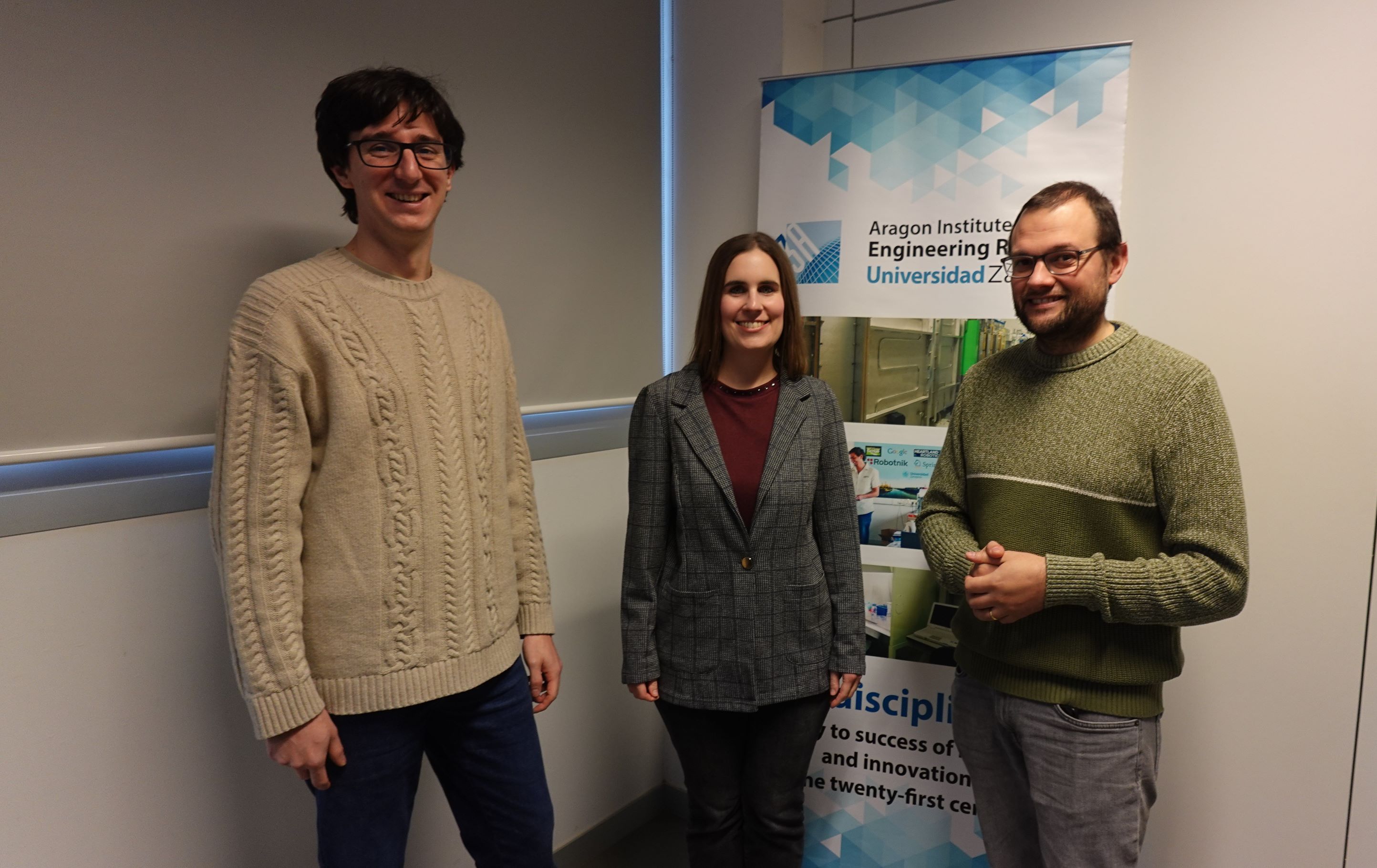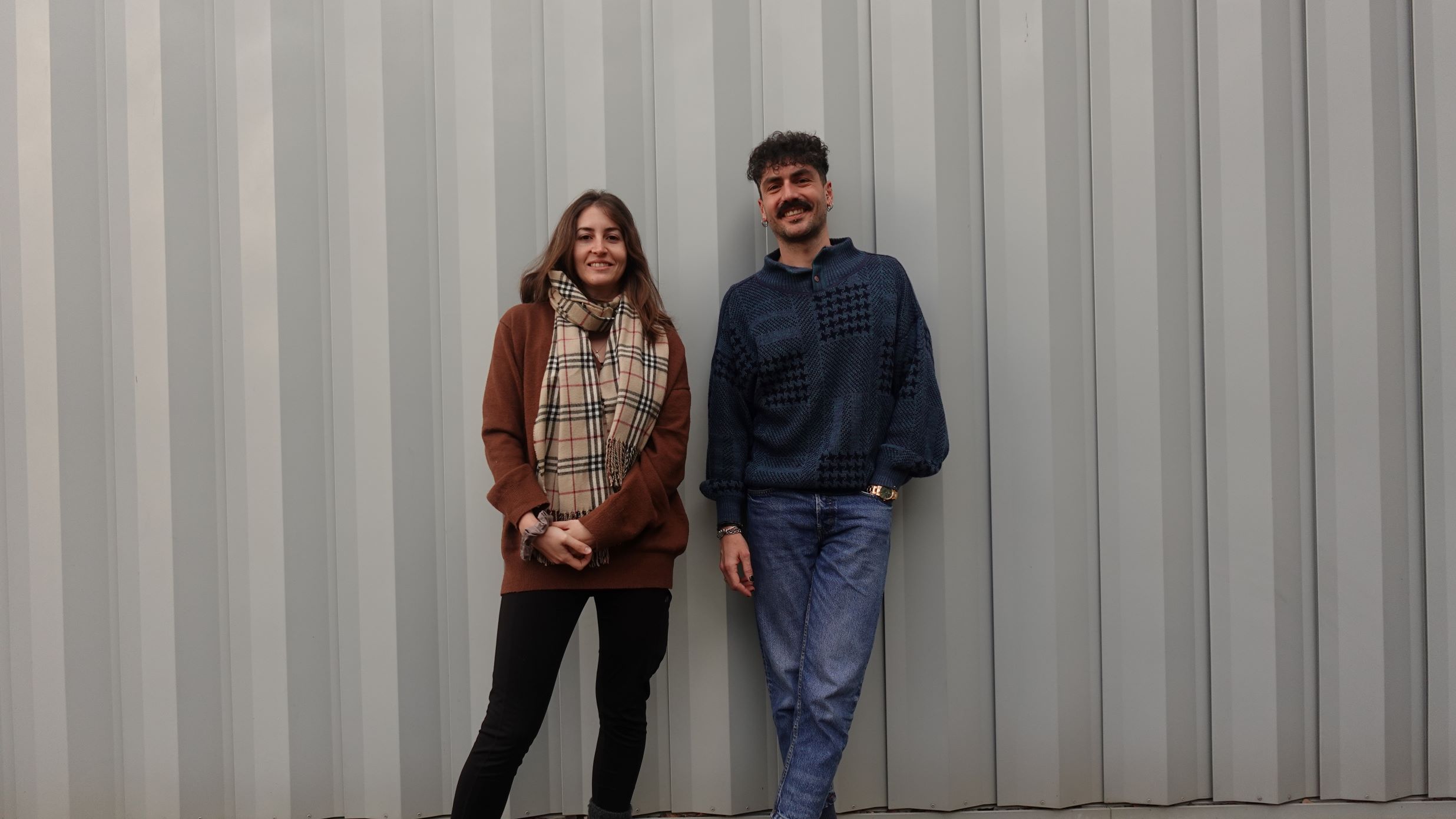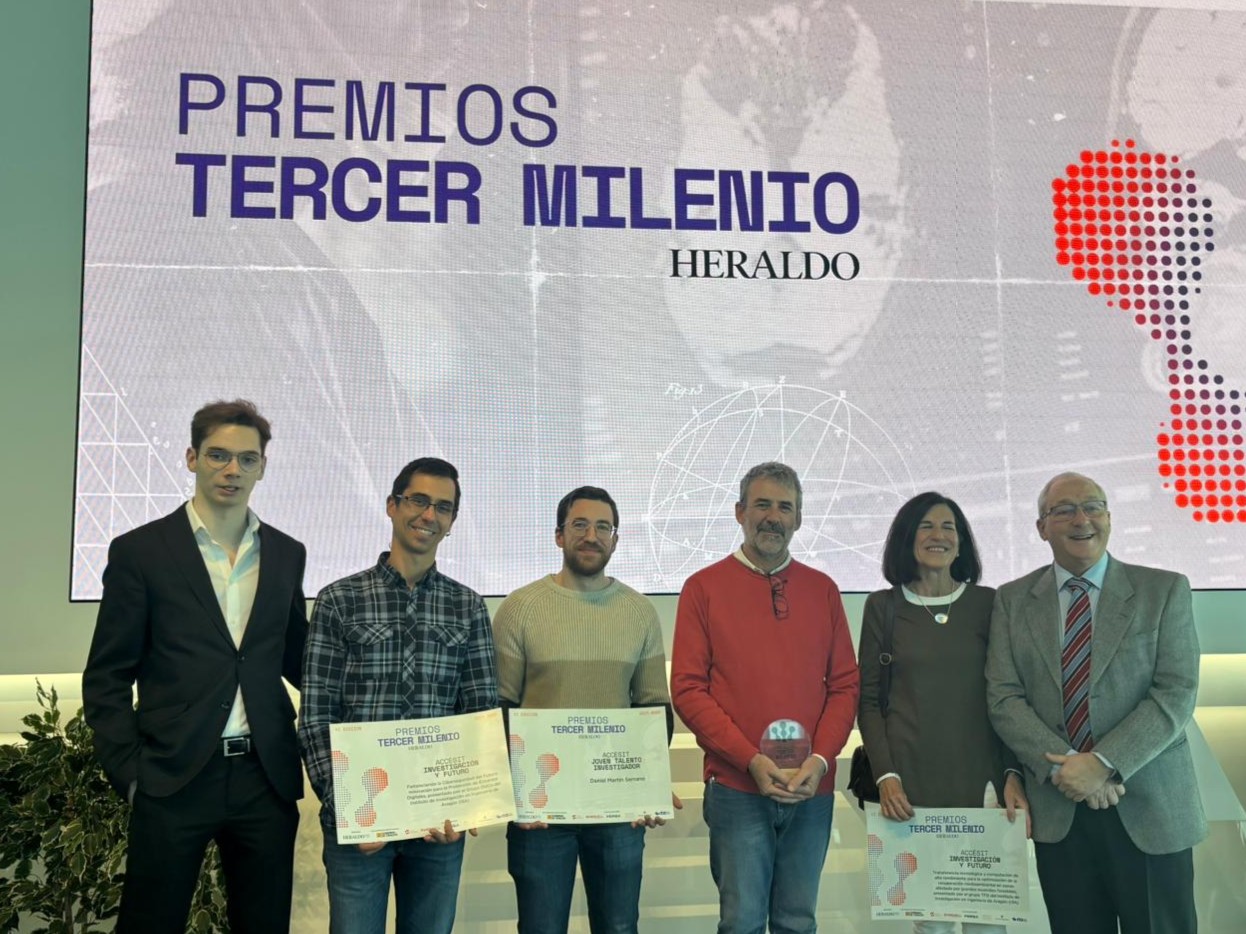Young research talent from the University of Zaragoza has once again stood out in one of the international calls for research excellence, the prestigious Starting Grant from the European Research Council (ERC). And it has done so twice, as on this occasion the European Union has selected the research projects of two young researchers: Ana Serrano, professor and researcher at the Aragón Engineering Research Institute (I3A), and María Sancho, researcher at the Aragón Institute of Nanoscience and Materials (INMA, a joint centre of the Spanish National Research Council, CSIC-Unizar), the Aragón Health Research Institute (IIS Aragón) and CIBER-BBN.
Over five years, with €1.5 million in funding per project, both scientists will conduct groundbreaking, cutting-edge research, leading their own research teams and hiring scientific staff. In the case of I3A researcher Ana Serrano, she will work to transform immersive technologies, with realistic conditions, closer to their use in applications such as telemedicine, the training of surgeons and pilots, the aerospace industry, cultural heritage conservation and education.
The European Research Council funds and supports outstanding researchers and their teams with the aim of pursuing high-risk, high-reward innovations in any field of research. Scientific excellence is the sole criterion for evaluating applications for ERC grants in their various categories, with the aim of ensuring that the research funded leads to significant advances at the frontiers of knowledge.
Specifically, Starting Grants are aimed at talented researchers at the beginning of their research careers who have already done excellent work and have the potential to become leaders in research. ‘We are truly proud of the achievements of these young scientists,’ said Pilar Pina, Vice-Chancellor for Scientific Policy, at the ERC presentation ceremony. She was joined by the director of I3A, Jesús Arauzo, the director of INMA (joint CSIC-Unizar), Elena Gálvez, the director of IIS Aragón, Ángel Lanas, and the CSIC representative in Aragón, María Jesús Lázaro.
PROXIE Project: How people perceive immersive virtual, augmented and mixed reality (XR) environments in realistic conditions
Ana Serrano, professor and researcher at I3A and the Graphics and Imaging Lab (GILab) group at the University of Zaragoza, will use the funding obtained to develop the PROXIE (Perceptual Realities: Optimising XR through Perceptually-Informed Experiences) project. With €1.5 million in funding over five years, four pre-doctoral researchers, two post-doctoral researchers and a laboratory technician will join the project, contributing to the training of young talent and the consolidation of a group of excellence in perception and XR technologies in Aragon.
The PROXIE project seeks to understand how people perceive and interact with immersive virtual, augmented and mixed reality (XR) environments in realistic conditions, closer to their use in applications such as telemedicine, surgeon and pilot training, the aerospace industry, cultural heritage conservation and education. While most current studies analyse perception in highly simplified scenarios, PROXIE focuses on complex and dynamic situations, similar to those in the real world, in order to develop computational models that anticipate how we perceive, attend to and respond in XR environments. The success of this technology does not depend solely on the power of computers or the quality of devices, but on their ability to adapt to the way we perceive the world. Understanding these mechanisms will enable us to optimise the experience in real time, reducing risks and increasing efficiency in critical sectors.
Beyond these immediate applications, XR has the potential to become one of the most influential technologies of the coming decades: it can transform the way we work, learn, interact and even explore space. From performing remote surgery to attending a virtual class as naturally as if you were there in person, or training astronauts for future missions to Mars, the possibilities are enormous. PROXIE seeks to overcome the limitations that have hitherto held back extended reality, contributing scientific knowledge that will enable this technology to unleash its full potential in our daily lives.
‘If a surgeon in training uses virtual reality glasses,’ explains Ana Serrano, ‘PROXIE will allow the system to “know” where in the scene they are actually focusing their attention. With that information, the simulation can concentrate the graphic resources in that area, show relevant details and reduce unnecessary ones. The result is a more realistic, less tiring experience that improves learning accuracy.’
Ana Serrano is a specialist in visual perception, computer graphics and immersive XR technologies. She holds a PhD in Computer Engineering from the University of Zaragoza and has developed her international career at leading institutions such as Stanford University (USA), the Max Planck Institute for Computer Science (Germany) and Adobe Research. Her research has been recognised with numerous awards, including the IEEE VGTC Significant New Researcher Award (2024), given each year to a single person worldwide at the largest international conference in the sector (IEEE VR). This award ranks her as one of the most influential young researchers internationally in the field of XR. Other recognitions include the Eurographics PhD Award (2020), which distinguishes the best doctoral theses in Europe in computer graphics, the Eurographics Young Researcher Award (2023), as well as awards from leading companies such as the NVIDIA Graduate Fellowship (2018) and the Adobe Research Fellowship (2017).
‘The awarding of this project represents a unique opportunity to consolidate my research career and continue strengthening our team in Zaragoza,’ says Ana Serrano. ‘My goal is for PROXIE's advances to transcend the academic sphere and have a real impact on society, improving the way we work, learn and interact through immersive technologies.’
The University of Zaragoza increases its number of ERC projects from 20 to 22
The European Research Council (ERC) has selected projects by 478 young researchers, 32 of whom are from Spain.
With this new grant, the University of Zaragoza has gone from 20 to 22 ERC projects since 2009, with a total amount rising from €34.8 million to €38.2 million, distributed among the following categories: Proof of Concept, 3; ERC-Starting, 9; ERC-Consolidator, 4; ERC-Advanced, 5; and Synergy Grant, 1.
At the I3A, in addition to the grant obtained by Ana Serrano in the 2022 call for proposals, two other StG (Starting Grants) have been obtained, Jaime Ibáñez (ECHOES project) and Alejandra Consejo (Vision SAFE). In addition, since that date, two Proofs of Concept (PoC) linked to the Advanced Grant ICOMICS by researcher José Manuel García Aznar have been obtained.
These achievements are part of its international strategy to promote participation in programmes of excellence such as the ERC (European Research Council). The aim is to increase the number of researchers applying for different types of ERC grants in order to improve the chances of success. To this end, the I3A provides financial support for the preparation of the interview stage in order to achieve more competitive proposals and thus address the high success rate, which was 12.2% in the last call for proposals.




